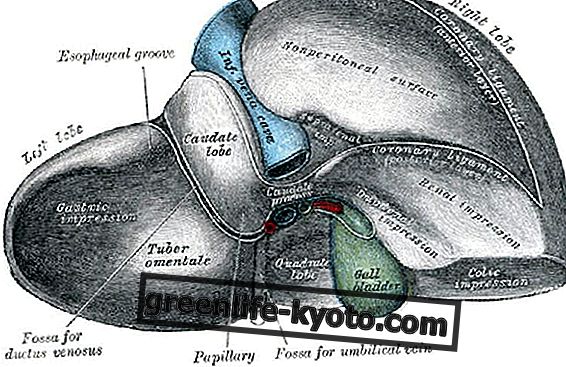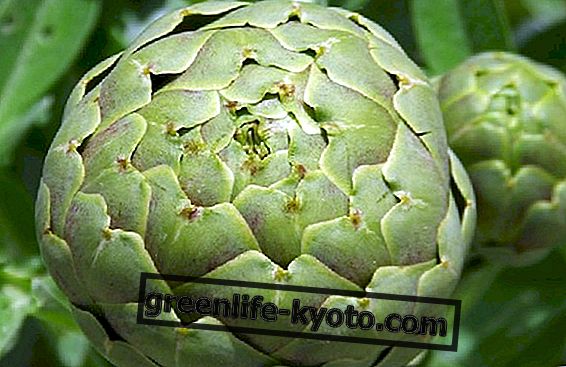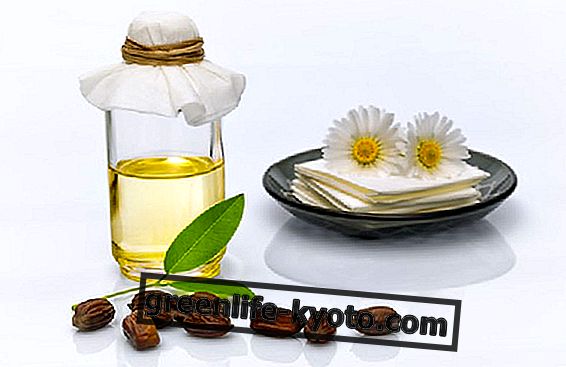
The officinal plants for the intestine possess laxative, anti-inflammatory, carminative and regulatory properties of gastrointestinal function . The most common ailments that this organ can experience are constipation, usually caused by an unbalanced or deficient diet of fiber; diarrhea, which can arise from food poisoning, drug or antibiotic treatment and viral infections.
Even the lifestyle ; the stress; emotions such as anxiety can affect the health of the bowel on a psychosomatic level, and cause irritable bowel syndrome.
Within the most common pathologies that the intestine can contract there are also the diverticula, which consist of small protrusions of the innermost layers of the mucosa and submucosa of the colon. The most common symptom is abdominal pain, which can worsen from food intake and generally improves after evacuations and intestinal air emission. Nausea, swelling and constipation may also appear or, on the contrary, diarrhea . In severe cases, blood from the anus and all the typical symptoms of infections can occur. The appearance of diverticula is related to a low-fiber diet.
The functions of the intestine
The main function of the intestine is to transform the digested food, coming from the stomach, into simpler molecules, to allow the assimilation of nutrients ; and to eliminate the scraps of these demolitions through peristalsis, choosing (by means of one's own brain) what must be absorbed and refusing the rest. Once the nutrients are transformed, they are absorbed by the hair cells, which cover the intestinal walls, and subsequently sent, through the blood, to all the cells of the body.
The intestine also plays a very important role as an immune barrier : the intestinal surface is colonized by over 400 species of microorganisms, which make up the intestinal bacterial flora and when there is an alteration of the internal ph, healthy bacteria such as lactobacilli and bifidobacteria diminish; while the harmful ones like the Bacillus Coli, increase (intestinal dysbiosis). A number of factors can alter this delicate balance, but the most important are improper nutrition, stress and antibiotic treatment.
Also find homeopathic remedies for irritable bowel syndrome
Medicinal plants with laxative action
In herbal medicine, laxative herbal teas can be prepared to facilitate evacuation, which through the stimulation of peristalsis, cause the contraction of the smooth muscle that allows the elimination of feces.
The licorice root has a slight laxative action, thanks to the presence of mannite, the active ingredient of manna . Mannitol (Mannitol) is a natural sugar that acts against constipation, attracting water into the colon and facilitating its emptying. For this reason the decoction is very effective in the case of constipation and in disorders related to irritable bowel syndrome .
The leaves of the Seine contain anthraquinone glycosides (sennosides A and B); mucilage; flavonoids; and sugars that give the plant purgative activity . The senna possesses, in particular, elective tropism towards the large intestine, with consequent activation of the peristalsis, which promotes the escape of the faeces in the intestine.
The buckthorn is indicated in cases in which the stools must be soft, in all those situations in which the natural physiological evacuation process can be made particularly difficult and painful by enlarged and inflamed veins in the area of the anus: in the presence of fissures, of hemorrhoids and after rectal surgeries. Its intake is also indicated to those who have previously used very strong laxatives and on which depends the intestinal inertia (sluggish bowel), in the chronic constipation of the elderly, and when it is necessary to have soft stools and easy defecation .
Medicinal plants with antidiarrheal action
Other plants with an astringent action can be used to block diarrhea, caused by alteration of the bacterial flora, intestinal infections or food poisoning.
The leaves and dried fruits of the blueberry exert an antidiarrheal action due to the high content of tannins, active ingredients with astringent properties. The anthocyanins of the plant also have an antiseptic effect useful in the treatment of abdominal painful colic and cystitis. Recently it was discovered that they inhibit the adhesion of colibacilli to the wall of the intestine and bladder, thus providing an explanation for their use in intestinal and urinary infections.
Also the Potentilla has always been known for its astringent, anti-inflammatory, healing, bacteriostatic and antiviral activity . This is why it is used against all forms of diarrhea and inflammation of the mucous membranes, especially intestinal. The name tormentilla derives from the Latin word tormina which means "visceral pains", in reference to the therapeutic properties of the plant. These properties are due to the high concentration of tannins in the phytocomplex of the rhizome, which make it a very effective remedy in case of chronic enteritis, gastroenteritis fermentative .
Medicinal plants with anti-inflammatory action
Some herbs flare up the intestine, thanks to the presence of mucilage with decongestant action on the mucous membranes, which retain water, thus softening the feces.
Mallow: the mucilages contained in the leaves and flowers, in contact with water, produce a sort of gel, capable of increasing the quantity of fecal mass, softening its contents. This lubricating effect is used in the presence of hemorrhoids, anal fissures, colitis . The ability to facilitate bowel emptying and defecation in a delicate manner makes the mallow particularly appreciated for its safety and efficacy.
The juice of Aloe vera leaves is one of the most powerful detoxifying agents, with an immunostimulatory action; anti-inflammatory; regenerating tissue. According to scientific research, the key to the power of aloe is the presence of mucopolysaccharides, active ingredients that act as lubricants for our joints and protectors of the mucous membranes that line the tissues of internal organs.
The psyllium seeds are instead indicated for chronic constipation, because the mucilages make it a very effective but harmless natural laxative, of mechanical type . In addition, the mucilages are polysaccharides of complex chemical composition, belonging to the water-soluble fiber categories and therefore have an anti-inflammatory, emollient and protective effect on the mucous membranes of the intestinal walls. Psyllium is, in particular, completely harmless and is indicated for constipation during pregnancy and lactation; for children and cardiac patients who suffer from diverticula, and in all cases in which laxatives cannot be taken which cause peristalsis in an aggressive manner, producing muscular contractions.
Homeopathic remedies for the intestine: what are they?
Medicinal plants with carminative action
Plants with a carminative action help eliminate the gases that are formed by poor digestion, food intolerances or due to the permeability of feces in the colon, when there is constipation. These herbs help deflate and relax the abdominal muscles in case of cramps or lower abdominal pains.
- Fennel : the carminative properties depend both on its ability to inhibit the fermentation processes in the intestine and on its antispastic action on the smooth muscle of the colon. In fact during the intestinal fermentation, in particular that of the sugars, high quantities of gas are produced, which make the intestine swell and stimulate the contractions of its smooth muscles, causing a sense of swelling, flatulence and pain in the abdomen .
- Angelica : has an antispasmodic, calming, carminative, digestive action . Due to these properties, angelica extracts are used to relax the nervous system when one tends to somatize on the intestine ; while the carminative effect facilitates digestion, avoiding the formation of intestinal gases.
- Lemon balm : the leaves rich in essential oil give the plant a pleasant aroma and taste of lemon, and are used in states of anxiety with somatizations on the gastrointestinal system. Due to its antispasmodic, anti-inflammatory and carminative action it is indicated in case of meteorism, digestive disorders, nausea, flatulence, abdominal cramps and colitis .













